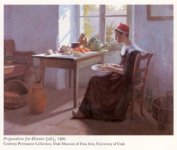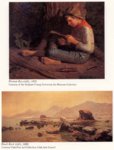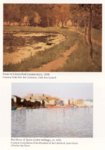| Identifier |
/tanner/image/basket_chips.xml |
| Title |
A Basket of Chips: An Autobiography |
| Creator |
Harwood, James Taylor, 1860-1940 |
| Subject |
Artists; Painters; Artists' writings |
| Subject Local |
Harwood, James Taylor, 1860-1940; Artists--Utah--Biography; Harwood, Harriett Richards, (1870-1922) |
| Description |
These memoirs of Utah artist and teacher James T. Harwood cover a wide range of subjects including farming, gardening, bird watching and cooking. But, primarily, "A Basket of Chips" is about his early love, Harriett Richards, and their life together. |
| Publisher |
Tanner Trust Fund University of Utah Library, Salt Lake City, Utah |
| Contributors |
Olpin, Robert S.; Ward, Margery W.; Cooley, Everett L.; Madsen, Brigham D.; Tyler, S. Lyman |
| Date |
1985 |
| Type |
Text |
| Format |
application/pdf |
| Language |
eng |
| Relation |
Is part of: Utah, the Mormons, and the West, no. 12 |
| Coverage |
1860-1940 |
| Rights Management |
University of Utah, Copyright 2001 |
| Holding Institution |
J. Willard Marriott Library, University of Utah |
| Source Physical Dimensions |
14.5 cm x 22.75 cm |
| Source Characteristics |
Printed Hard Cover Book |
| Scanning Technician |
Karen Edge |
| Call Number |
N 6537 H364 A2 1985 |
| ARK |
ark:/87278/s6zs2vsj |
| Topic |
Artists; Painters; First person narrative |
| Setname |
uum_ttb |
| ID |
327930 |
| Reference URL |
https://collections.lib.utah.edu/ark:/87278/s6zs2vsj |





















































































































































































































